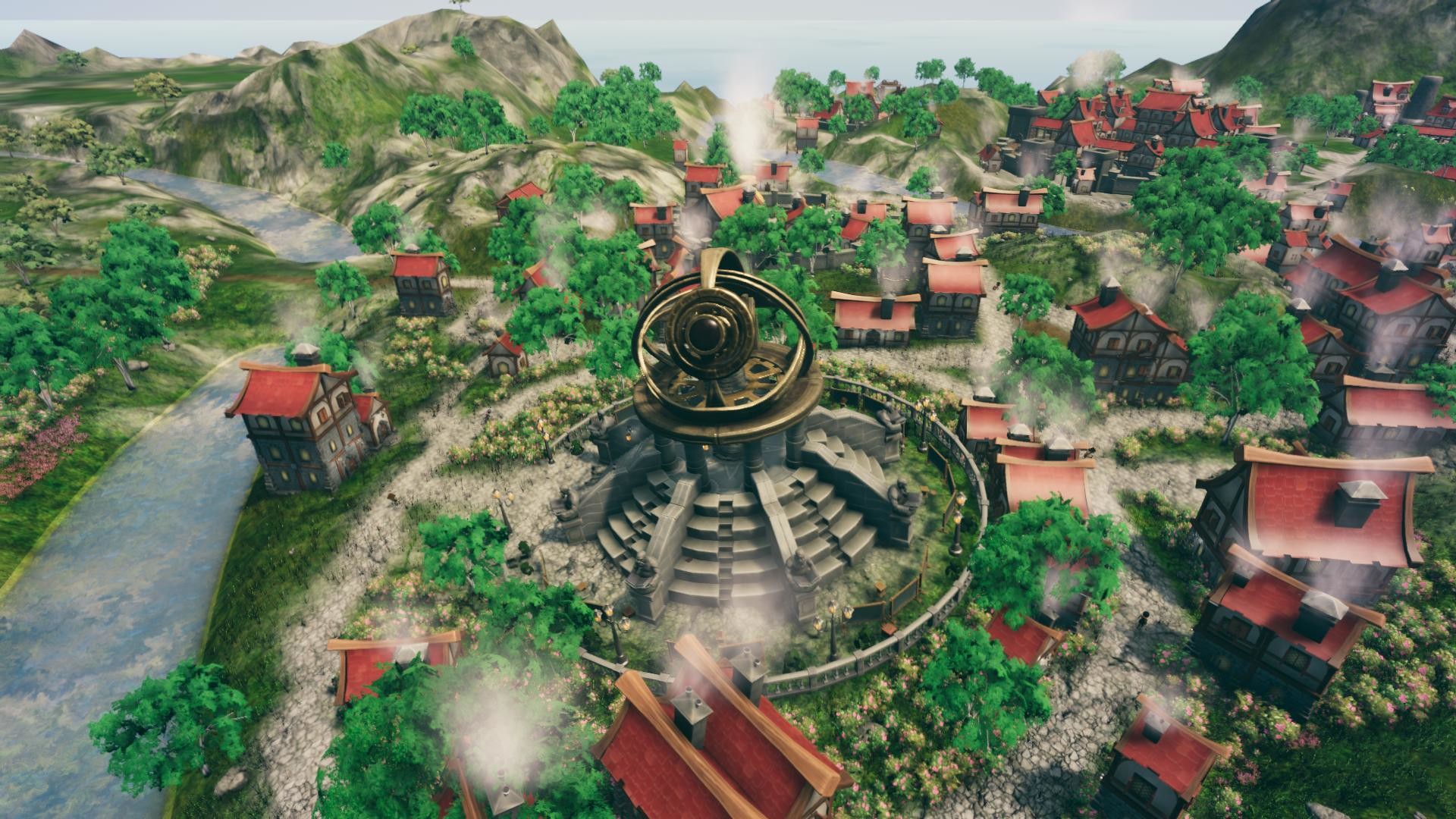Fata Deum: God Sim Revival, Honoring Black & White's Legacy
Last Updated: October 21, 2025

The gaming world has watched with bated breath as Fata Deum, a title from developer 42 Bits Entertainment, arrived in Early Access to rekindle the long-dormant flame of the god simulation genre. For many, this genre evokes fond memories of classics, yet the game’s debut has been met with a complex reception, with some players noting that in its current state, the experience can feel closer to an "idle sim." This observation highlights the monumental challenge of reviving a beloved genre. Published by Aerosoft, Fata Deum steps forward not merely as a new entry but as a profound and direct homage to Lionhead's seminal work, Black & White, aiming to once again capture the essence of divine power and moral choice.
The Resurgence of Divine Intervention: A Genre Re-evaluation
God simulation games, a distinct subgenre of simulation, reached their zenith in the late 20th and early 21st centuries. Titles like Populous, Dungeon Keeper, and most notably, Black & White, captivated players by offering the ultimate fantasy: omnipotence. These games challenged players to guide civilizations, nurture or torment followers, and navigate complex moral landscapes. The genre’s appeal lay in its unique blend of strategic depth, emergent storytelling, and the profound sense of agency it bestowed upon the player. However, as gaming trends shifted, the traditional god sim receded from the limelight, leaving a void many enthusiasts have yearned to see filled—a desire that Fata Deum now seeks to fulfill.
Fata Deum's Vision: Echoes of a Pantheon Past
At the heart of Fata Deum’s design is a reverent homage to Black & White. This is immediately evident in its aesthetic and core mechanics. Players find themselves hovering over sprawling, higgledy-piggledy 3D island maps, reminiscent of the vibrant, organic worlds Lionhead crafted. The iconic hand cursor, a direct callback to Black & White’s innovative interface, returns as the primary tool for divine intervention. This hand is not merely a pointer; it is the embodiment of the player’s will, capable of grand gestures and intimate interactions. It can be used to carry believers to safety, shielding them from harm, or, with a more malevolent inclination, to lob them into the sea—a stark reminder of the moral choices inherent in godhood. This deliberate use of beloved mechanics creates an immediate sense of familiarity for genre veterans.
Beyond Homage: Charting New Divine Paths
While Fata Deum wears its inspiration on its sleeve, it also introduces significant differences to carve out its own identity. Rather than a simple good-versus-evil binary, the game operates on a more nuanced Fear vs. Love spectrum, where players manipulate the mortals' state of mind to generate mana and influence their behavior. A dynamic day/night cycle directly impacts gameplay, as different actions and mortal behaviors are tied to the time of day. Players can also raise formidable armies and command them in battle, adding a layer of real-time strategy to the divine mandate. These systems, combined with a progression of four distinct ages, aim to provide a modern structure and deeper strategic layer to the classic god sim formula.
The Early Access Conundrum: Realizing Godhood
The comparison of god sims to "idle sims," which emerged during the game’s Early Access launch, offers a compelling lens through which to view its current state. While traditional god sims demand active strategic engagement, the concept of influencing a world that develops without constant micromanagement shares a link with idle mechanics. The initial reception suggests that Fata Deum, in its early form, has yet to fully realize the strategic depth promised by its systems, leading some to feel more like observers than active deities.
This feedback underscores the immense challenge the game faces. Originating as a one-man project in 2018 by Christoph Schulze, Fata Deum must now balance satisfying the nostalgic desire for scale while offering the profound, interactive choices that are the hallmark of true godhood. The Early Access period is critical for the development team to refine these systems and demonstrate that its divine intervention is anything but idle, demanding thoughtful decisions that shape the destiny of its world.
Market Trends and the Future of a Genre Revival
The arrival of Fata Deum is indicative of a broader trend: the revival of beloved, yet underrepresented, genres. Developers are increasingly reintroducing classic gameplay loops with modern sensibilities, fueled by a nostalgic player base and a new generation of curious players. For the god sim genre, Fata Deum's journey is a significant test case. Its ongoing development and eventual success—or failure—will pave the way for a potential renaissance, encouraging others to explore the unique possibilities only god sims can offer. The game’s performance provides valuable insight into the market’s readiness for a full-fledged return to divine intervention and highlights the difficulty of escaping the long shadow cast by the "holy ghost of Black & White."
Conclusion
Fata Deum stands as a bold declaration that the god sim genre is ready for a resurgence. By consciously drawing from the legendary Black & White while implementing its own distinct innovations, it aims to deliver an experience that is both familiar and new. The challenge has now shifted from theory to practice; its ambitious vision of power and moral ambiguity must be fully realized through the Early Access process to resonate with enthusiasts and newcomers alike. As players continue to shape its world—and its development—Fata Deum offers a tantalizing, if imperfect, glimpse into a future where the gods once again walk among us.